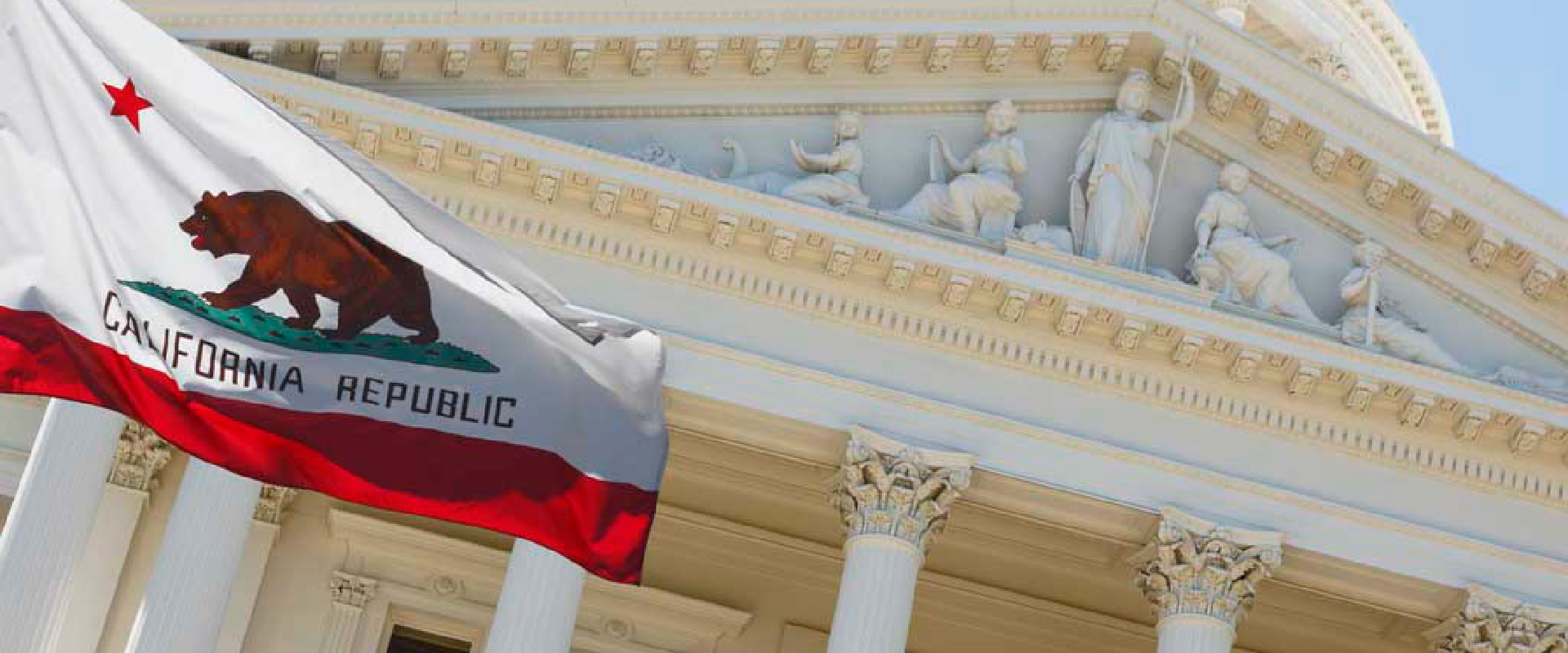Until We Meet Again: Attorney General Confirms the Brown Act’s Broad Application to Informal Gatherings of Members of a Legislative Body

October 2024
Number 42
In a recent opinion, the California Attorney General found that a gathering of a majority of the members of a city council at a chamber of commerce event constituted a “meeting” of the city council under the Ralph M. Brown Act (“Brown Act”), under the specific facts presented. This opinion provides useful insight for public agencies into how the Brown Act may be applied to similar gatherings involving their own governing body members, which may in turn help to avoid inadvertent missteps with the open meetings law.
Background
The Ventura City Council consists of seven members, one of which is appointed to serve as mayor. The city announced on social media that the mayor would deliver a “State of the City” address at an event hosted by the Ventura Chamber of Commerce at a local hotel. The announcement indicated that the public could purchase tickets to attend the event, but did not mention any other way for the public to watch the mayor’s address in real time. The announcement stated that the mayor’s address would be “available later online” and would be shared with the public at a council meeting approximately a month following the event.
The event took place with less than a quorum of the council attending, nevertheless, internal discussion between Ventura’s city attorney and the Ventura County district attorney led to the presentation of three hypothetical questions to the Attorney General, each of which is discussed below.
1. Would the event be considered a meeting under the Brown Act if a majority of the council members attended?
The Brown Act states generally that every meeting of a legislative body of a local agency shall be open and public, and the public shall be permitted to attend the meetings. A meeting is defined as “a congregation of a majority of the members of a legislative body at the same time and location…to hear, discuss, deliberate, or take action on any item that is within the subject matter jurisdiction of the legislative body.”
The Attorney General found that attendees would be gathered at the event to listen to the mayor’s speech and would hear and discuss information that was relevant to the state of the city, which is within the city council’s official duties. Thus, if a majority of the city council members attended the event, the Attorney General concluded that it would constitute a meeting under the Brown Act.
2. Would the Brown Act exception for conferences or similar gatherings apply to this event?
The Brown Act contains an exception to its definition of “meetings” that applies to conferences or other similar gatherings open to the public that involve discussion of issues of general interest to the public or to public agencies of the type represented by the legislative body.
In analyzing whether the gathering of the city council would fall within this exception, the Attorney General looked to common definitions of “conference” to define the term as one that involves multiple presentations facilitating an exchange of ideas between multiple parties. The Attorney General distinguished the “State of the City” event as one that involved a single speech by a single official regarding the conditions of a single city. Since the event was narrowly focused on the city rather than more broadly faceted, the Attorney General concluded that the event would not fit into the Brown Act’s exception for conferences.
3. Would the Brown Act’s exception for community meetings apply to this event?
The Brown Act has another exception that applies to an open and publicized meeting organized to address a topic of local community concern by a person or organization other than the local agency. The Attorney General concluded that the “State of the City” event would not have been sufficiently open to satisfy this exception, because the public would have to purchase tickets to gain access to the event and there was no other way for the public to watch the mayor’s speech in real time. While video of the event would be made available to the public approximately a month after the event, in the Attorney General’s view, this option was not enough to satisfy the openness requirement of this exception.
Takeaways
This Attorney General opinion serves as a reminder that Brown Act “meetings” can occur in unconventional and informal gatherings of governing body members just as they do in the scheduled, formal meetings of those governing bodies. Public agencies should therefore take great care with communications and discussion of official business among members of their governing bodies both in and outside of designated meetings. What defines a “meeting” under the Brown Act is largely fact-specific, so public agencies should consult with legal counsel to determine if unique events attended by their members, such as the “State of the City” event discussed in the Attorney General opinion, may qualify as meetings. Finally, public agencies are encouraged to consult with legal counsel if they believe one of the exceptions to the Brown Act may apply to their situation, as that too, is a fact-intensive determination.
For more information on the Brown Act, please contact the authors of this Client News Brief or any attorney at one of our eight offices located statewide. You can also subscribe to our podcasts, follow us on Facebook, Twitter and LinkedIn or download our mobile app.
Number 42
In a recent opinion, the California Attorney General found that a gathering of a majority of the members of a city council at a chamber of commerce event constituted a “meeting” of the city council under the Ralph M. Brown Act (“Brown Act”), under the specific facts presented. This opinion provides useful insight for public agencies into how the Brown Act may be applied to similar gatherings involving their own governing body members, which may in turn help to avoid inadvertent missteps with the open meetings law.
Background
The Ventura City Council consists of seven members, one of which is appointed to serve as mayor. The city announced on social media that the mayor would deliver a “State of the City” address at an event hosted by the Ventura Chamber of Commerce at a local hotel. The announcement indicated that the public could purchase tickets to attend the event, but did not mention any other way for the public to watch the mayor’s address in real time. The announcement stated that the mayor’s address would be “available later online” and would be shared with the public at a council meeting approximately a month following the event.
The event took place with less than a quorum of the council attending, nevertheless, internal discussion between Ventura’s city attorney and the Ventura County district attorney led to the presentation of three hypothetical questions to the Attorney General, each of which is discussed below.
1. Would the event be considered a meeting under the Brown Act if a majority of the council members attended?
The Brown Act states generally that every meeting of a legislative body of a local agency shall be open and public, and the public shall be permitted to attend the meetings. A meeting is defined as “a congregation of a majority of the members of a legislative body at the same time and location…to hear, discuss, deliberate, or take action on any item that is within the subject matter jurisdiction of the legislative body.”
The Attorney General found that attendees would be gathered at the event to listen to the mayor’s speech and would hear and discuss information that was relevant to the state of the city, which is within the city council’s official duties. Thus, if a majority of the city council members attended the event, the Attorney General concluded that it would constitute a meeting under the Brown Act.
2. Would the Brown Act exception for conferences or similar gatherings apply to this event?
The Brown Act contains an exception to its definition of “meetings” that applies to conferences or other similar gatherings open to the public that involve discussion of issues of general interest to the public or to public agencies of the type represented by the legislative body.
In analyzing whether the gathering of the city council would fall within this exception, the Attorney General looked to common definitions of “conference” to define the term as one that involves multiple presentations facilitating an exchange of ideas between multiple parties. The Attorney General distinguished the “State of the City” event as one that involved a single speech by a single official regarding the conditions of a single city. Since the event was narrowly focused on the city rather than more broadly faceted, the Attorney General concluded that the event would not fit into the Brown Act’s exception for conferences.
3. Would the Brown Act’s exception for community meetings apply to this event?
The Brown Act has another exception that applies to an open and publicized meeting organized to address a topic of local community concern by a person or organization other than the local agency. The Attorney General concluded that the “State of the City” event would not have been sufficiently open to satisfy this exception, because the public would have to purchase tickets to gain access to the event and there was no other way for the public to watch the mayor’s speech in real time. While video of the event would be made available to the public approximately a month after the event, in the Attorney General’s view, this option was not enough to satisfy the openness requirement of this exception.
Takeaways
This Attorney General opinion serves as a reminder that Brown Act “meetings” can occur in unconventional and informal gatherings of governing body members just as they do in the scheduled, formal meetings of those governing bodies. Public agencies should therefore take great care with communications and discussion of official business among members of their governing bodies both in and outside of designated meetings. What defines a “meeting” under the Brown Act is largely fact-specific, so public agencies should consult with legal counsel to determine if unique events attended by their members, such as the “State of the City” event discussed in the Attorney General opinion, may qualify as meetings. Finally, public agencies are encouraged to consult with legal counsel if they believe one of the exceptions to the Brown Act may apply to their situation, as that too, is a fact-intensive determination.
For more information on the Brown Act, please contact the authors of this Client News Brief or any attorney at one of our eight offices located statewide. You can also subscribe to our podcasts, follow us on Facebook, Twitter and LinkedIn or download our mobile app.
Disclaimer: As the information contained herein is necessarily general, its application to a particular set of facts and circumstances may vary. For this reason, this News Brief does not constitute legal advice. We recommend that you consult with your counsel prior to acting on the information contained herein.






